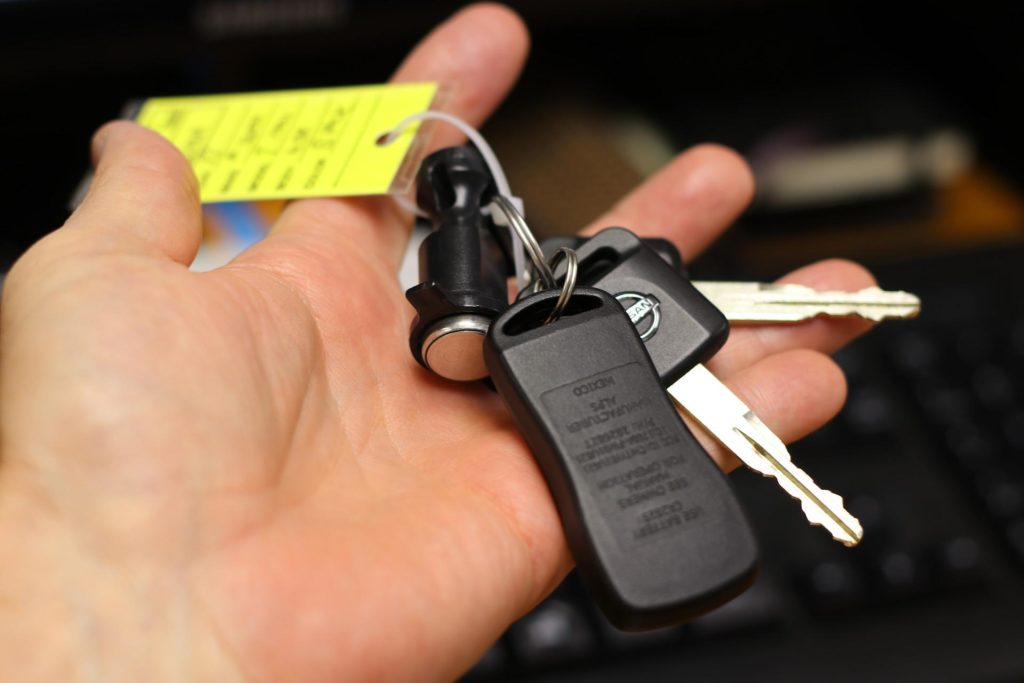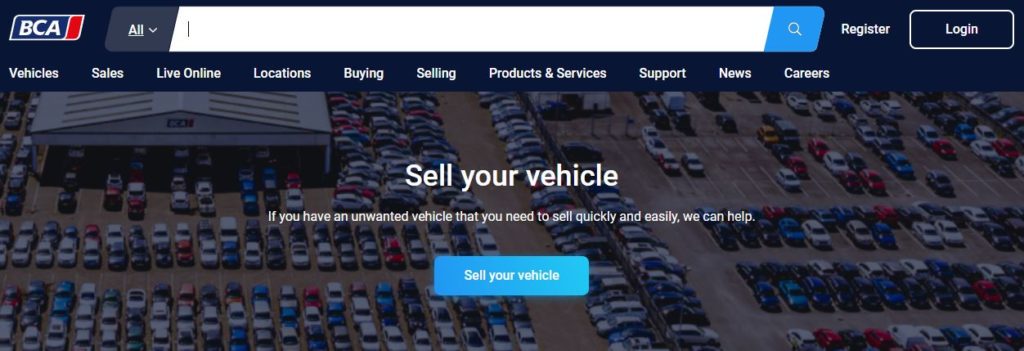Sell my car at auction UK: how it works, how to get the best price and other options
Want to sell your car at auction? Here’s a look at how it works, how much you'll get and what the alternatives are.

Selling your car at auction won’t get you a better price than selling it yourself by listing it on a site like AutoTrader.
It will, however, be less hassle.
Conversely, there’s a decent chance you’ll get a better price than selling to one of the various car-buying websites out there, but it’s going to require more effort than simply filling out a form and having someone collect your car from your home.
In other words, selling at auction is something of a middle ground between the easiest and the most profitable option.
But there are also risks involved, primarily you could end going through all the admin and paying to get it in the auction but no one buys your motor.
So if you do decide ‘I want to sell my car at auction’, there are some vital issues to understand, such as how auctions actually work, how to boost your chances of getting a better price, and the fees to watch out for.
Sell my car at auction: how it works
Once you contact an auction house, you’ll have to share some details about your vehicle, like its make, model, age and mileage, and then they may give you an initial valuation.
You can then take your car to the auctioneers to inspect it in person when they can give you a better idea of what it might fetch.
Once you’re happy to go ahead, your car will then be included in some of the pre-auction material produced by the auction house.
Just as a regular auction house will put together a brochure of ‘lots’ that will be included in a future auction, car auctioneers do much the same thing with the cars they are selling.
This gives possible buyers the opportunity to see what’s up for auction, and what they might be interested in buying.
Some auction houses hold physical viewings before the day of the auction too.
You may get the chance to set a reserve price, which is the minimum amount you will accept in a sale, though be warned doing so may incur an additional charge.
On the day of the auction, it all comes down to the interest of potential buyers.
Auctions can be held in person, online, or both at the same time.
If the car sells, then the auction house will handle you receiving the cash.
This might mean a bank transfer, or even being paid in cash, depending on your chosen auction house.
Get the best price when selling at auction

There’s no avoiding the fact that there is a comes with a lot of risk and uncertainty.
You’re effectively at the mercy of the buyers on the day.
If there are plenty of people interested in your car, you’ll likely get an even better return than if you sold your car through a more traditional manner, like listing it online.
However, if the buyers on the day aren’t particularly interested in a car like yours, then you may struggle to sell it at all.
That would mean not only having spent money on getting your car included in the auction but also having to consider what to do next to actually complete a sale, whether that be relisting in another auction or trying an alternative sales route.
It’s also important to think about who buys cars at auctions.
In many cases, these will be motoring professionals and dealerships who want to sell the vehicle on at a profit.
As a result, you are unlikely to get the highest possible price for your car when selling at auction.
After all, most buyers will be intending to sell it on rather than keep it.
One thing to consider is the reserve price.
This is the minimum bid that you will accept for your motor ‒ if the bids don’t reach this level, then the vehicle will remain unsold.
It’s important to set the reserve price at a level that is realistic, and which will help encourage bidders, but equally, you don’t want to set it so low that if the bidding action stalls after it’s reached, you’ll be left disappointed.
The auction house should be able to give you some advice on what would be a good reserve price while doing your own research over what the car could fetch elsewhere should also help.
As with any method of selling your car, your chances of getting a good price increase if the car looks at its best.
It’s common for auction houses to put together a brochure of ‘lots’ coming up in auctions, while there may also be an opportunity for interested buyers to come and have a look in person before the day of the auction.
Taking the time to get your car into the best possible condition ‒ perhaps by having any dents or scratches removed ‒ will leave you in a better position to get a great price.
As Central Car Auctions puts it, you want your car to be as presentable as possible, so clean it, top up the oil, screen wash and radiator, and make sure the tyre pressure is at the right level.
I want to sell my car at auction: which are the big players?
BCA is one of the main names in the auction world and has a few different auction options to choose from.
First off is the ‘BCA live online’ auctions, which are real-time auctions held with an auctioneer.
BCA reckons that vehicles typically sell within a minute. And then there are ‘bid now’ sales, where there is no auctioneer.
Instead, your vehicle is listed online for up to a week, until the reserve price is met.
The cost of selling through BCA varies based on the type of vehicle you’re selling, with a host of extras on offer.
If you sell for more than £1,000, there is a commission charge of 2.8% (net of VAT), while there is also a £25 fee for entry, and even a £30 ‘not sold’ fee.
There are plenty of additional services you can pay extra for, which might improve your chances of a sale.
These include getting your car assessed through the BCA Assured service, which guarantees its condition and costs £20.
You can also choose to valet your car, which costs ranging from £11 to £80.

Manheim: sell my car at auction
Manheim offers a couple of different forms of auction.
There are auctions held in person, called ‘in-lane’ auctions, held at one of the firm’s 15 physical auction centres.
According to the firm, these are attended by both industry buyers and regular members of the public looking for a new motor.
With in-lane auctions, there are also potential buyers following along online through its ‘simulcast’ service.
Manheim also runs online auctions, though it says these are for large trade customers rather than normal members of the public.
Manheim reckons that at its auctions, cars typically take less than a minute to sell.
Unfortunately, it’s not easy to work out what selling your car at a Manheim auction will cost, since there is no fixed fee.
Instead, the costs and fees vary not only based on the auction centre you use, but also if you sign up for any additional products and services.
These could include collection and storage ahead of the auction, valet and reconditioning, as well as its ‘SureCheck’ service where accredited inspectors check major vehicle components so that buyers have peace of mind over precisely what they are paying for.
Copart: sell my car at auction
Copart is an exclusively online car auction house, which holds daily auctions Monday to Friday.
It claims to sell more than 400,000 motors a year.
There are a host of different fees to consider with Copart.
These include a flat £99 sales fee, a £15 reserve price fee, a £60 collection fee and a £25 admin fee.
There are different sales packages on offer too.
The bronze package costs £15 and allows you to include 10 photos, while the silver service ‒ costing £30 ‒ also includes a vehicle exterior wash and internal vacuum, as well as having your car imaged individually in the marketing paddock.
Finally, the gold service costs £45 and includes all of the above, as well as targeted social media marketing.

Central Car Auctions is based in Scotland and claims to auction off thousands of cars each and every week.
It offers an online valuation service, and if you’re interested you can then take your car along for a more accurate valuation in person.
With Central Car Auctions, the selling charge varies based on the value of the car you’re selling.
For example, if you sell for under £1,000 then you’ll pay a £102 charge, while if it goes for more than £70,000 you’ll have to cough up £312.
You can see a full breakdown of Central Car Auction selling fees here.
There is also an entry fee of £30 and a service charge of £15 to pay.
Alternatives to selling your car at auction
If your priority is getting the best possible price, then you may want to look into selling it directly to another motorist yourself.
This may involve listing the car on one of the following sites, and handling the sales process on your own:
However, if you just want to sell quickly and get a decent ‒ albeit not the absolute highest ‒ price, then it may be worth using a car-buying platform.
There are plenty to choose from – we’ve listed the main ones below.
The first link will take you to our independent review to help you decide if they’re right for you and the second link will take you through to their site if you fancy jumping straight in and getting a quote.
Read our Motorway review or head this way to get a Motorway quote now.
Read our Webuyanycar review or head this way to get a Webuyanycar quote.
Read our Cazoo review or head this way to get a Cazoo quote.
Read out Wewantanycar review or head this way to get a Wewantanycar quote.
Read our Carwow review or head this way to get a Carwow quote.
Read our Arnold Clark review or head this way to get an Arnold Clark quote.
Read our Evans Halshaw review or get an Evans Halshaw quote.
Read our Money4yourmotors review or get your Money4yourmotors quote.
Compare offers from the various platforms so you get a better idea of what you could fetch for your car.
Verdict: should I sell my car at auction?
If you’re looking to complete a quick sale, then selling your car at auction may appeal.
You don’t have to go through the hassle of putting together an advert, organising viewings and negotiating a price.
Instead, you simply set a reserve price and then sit back and wait for the interested parties to bid.
If things go your way, and the buyers attending the auction ‒ whether online or in person ‒ are interested in your motor, then you may end up getting more from the sale than you might by selling it directly yourself.
However, the opposite is also true: a lack of interest could mean that you don’t get a great price, or even fail to sell altogether ‒ and you’ll likely still have to pay certain fees.
It all comes down to the buyers on the day of the auction.
As a result, an auction could mean a quick sale, but it could also mean a protracted one, as you end up relisting the vehicle repeatedly in the hope of finding an interested buyer.
If you just want a guaranteed sale, quickly, then you may be better off with a car-buying service.
It’s also worth remembering who those buyers are.
In many cases they are going to be trade professionals ‒ in fact, some auction houses have actually closed membership to members of the general public.
It means that the people buying the cars are doing so with the intention of selling them on themselves for a profit.
Obviously, this is going to impact what they will be willing to pay ‒ they will only buy your car at a price that allows them to sell it to another motorist at a profit.
As a result, if you are focused on getting the maximum price possible for your car, you may prefer to handle a direct sale yourself.
However, if luck is on your side and you set a competitive reserve price, then an auction may prove a speedy and lucrative way to sell your car.
